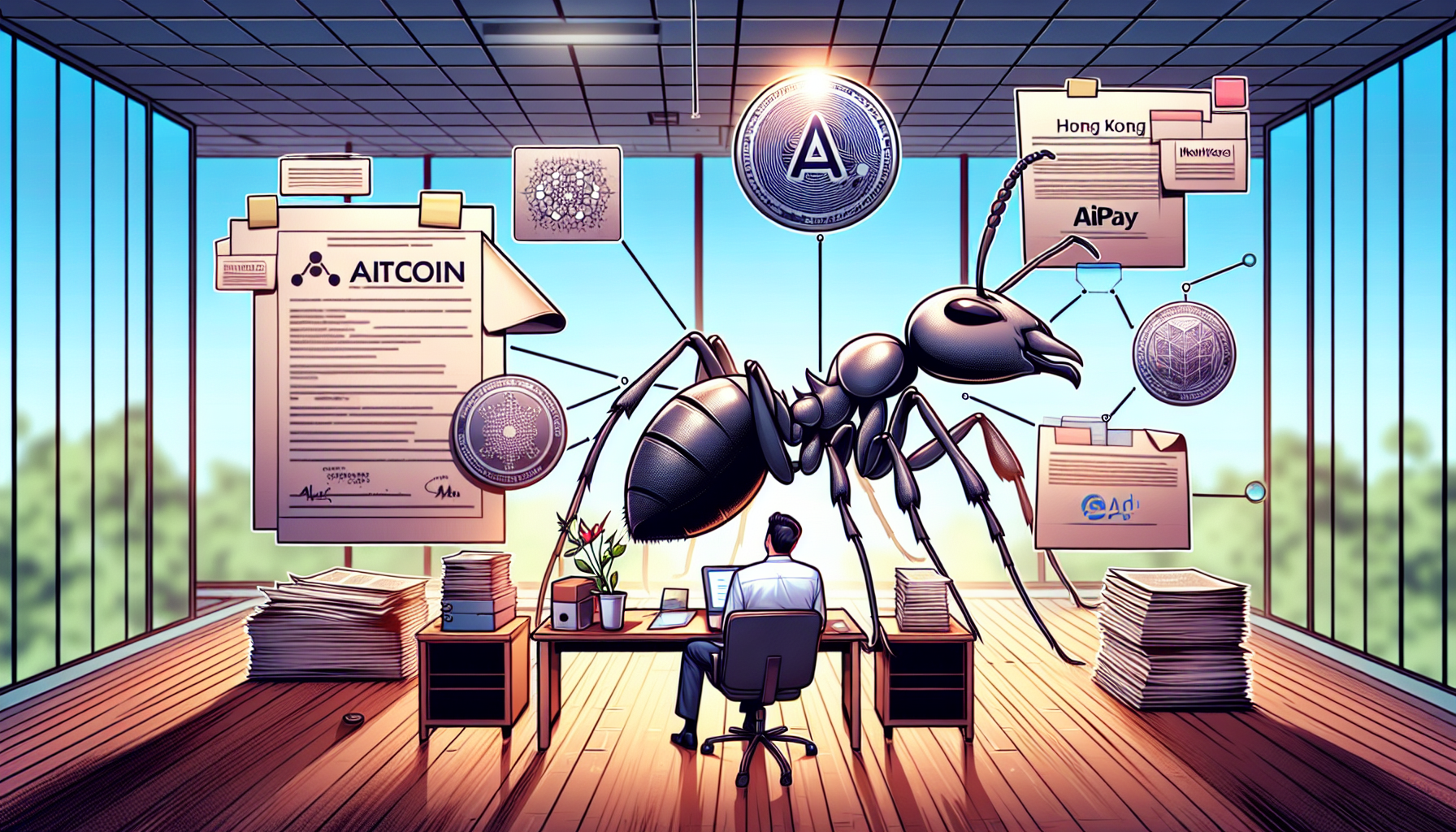Ant Group's Strategic Gambit: How 'AntCoin' Could Bridge Alipay and Hong Kong's Web3 Future
In a move that has sent ripples through the global financial technology landscape, Ant Group, the Alibaba-affiliated behemoth behind the colossal Alipay payment network, has taken a significant step toward the world of digital assets. The company's recent trademark application for "AntCoin" in Hong Kong is more than just a name registration; it is a powerful signal of intent. This action suggests that one of the world's most influential fintech players is methodically preparing to integrate its vast ecosystem with the burgeoning, regulated world of Web3 and stablecoins, potentially reshaping the future of digital payments in Asia and beyond.
Decoding the AntCoin Trademark: A Blueprint for a Digital Finance Juggernaut
The trademark filing, submitted in June, is notable not just for its existence but for its remarkably broad scope. The specification for "AntCoin" is a comprehensive dossier of financial activities, effectively outlining a vision for a unified digital financial platform. It spans the entire spectrum from traditional finance—including banking, foreign exchange, and lending services—to the core pillars of the blockchain economy. These include:

- Blockchain-based settlement and clearing services
- Digital asset custody and management
- Issuance and operation of stablecoins
- Loyalty and reward point programs
This all-encompassing approach positions AntCoin not as a niche cryptocurrency, but as a potential bridge. Its primary function appears to be connecting Ant Group's existing, TradFi-rooted Alipay ecosystem with the new, decentralized infrastructure of Web3, all under the regulatory umbrella being established in Hong Kong.
Hong Kong: The Deliberate Stage for a Web3 Ambition
The choice of Hong Kong as the filing jurisdiction is a critical piece of this strategic puzzle. It is far from coincidental. Over the past year, Hong Kong has aggressively positioned itself as a global hub for regulated digital assets, seeking to attract major financial institutions and technology firms. A cornerstone of this effort is its new stablecoin licensing regime, which officially took effect in August 2024.
This regulatory framework provides the legal clarity and security that a company of Ant Group's stature requires. By filing in Hong Kong, Ant is explicitly aligning its potential future operations with a regulated environment, distancing itself from the wild west image often associated with crypto and appealing to institutional and mainstream users. This move follows Ant's own earlier statements confirming it was "exploring" Hong Kong's stablecoin rules, making the AntCoin filing a logical and expected next step.
The Timing is Everything: FinTech Week and Strategic Signaling
Adding fuel to the speculative fire is the impeccable timing of the filing's discovery. It emerged just days before Hong Kong FinTech Week, a premier financial technology event where Ant Group Chairman Eric Jing is scheduled to speak. He will share the stage with key figures like Hong Kong’s Secretary for Financial Services, Christopher Hui, and Fred Hu of Primavera Capital.

This year's event has a notably crypto-heavy agenda, a significant shift from its traditionally TradFi-focused programming. The confluence of the trademark revelation and Jing's high-profile appearance at a crypto-centric forum is a powerful form of strategic communication, suggesting that Ant Group's Web3 ambitions will be a central topic of discussion and a key part of its future growth narrative.
The Alipay Multiplier: Why AntCoin is a Game Changer
To understand the potential impact of AntCoin, one must first appreciate the scale of Alipay. It is not merely a payment app; it is a digital life platform integrated into the daily existence of hundreds of millions of users across China and other markets. It handles everything from retail payments and bill settlements to wealth management and insurance.
Introducing a regulated stablecoin or a blockchain-based loyalty token like AntCoin into this ecosystem could be transformative. Imagine a scenario where users can:
- Seamlessly convert fiat currency into a Hong Kong dollar-pegged stablecoin for secure, instant, and low-cost transactions.
- Earn and spend "AntCoin" rewards across millions of merchants within the Alipay network, creating a powerful, unified loyalty economy.
- Utilize blockchain technology for transparent and efficient cross-border settlements, a complex and costly pain point in traditional finance.
This integration would provide Ant Group with a powerful tool to enhance user engagement, create new revenue streams, and future-proof its platform against the disruptive forces of decentralized finance.
Navigating the Regulatory Landscape: A Cautious but Deliberate Approach
It is crucial to emphasize that a trademark filing does not equate to a product launch. Ant Group has not officially confirmed any plans to issue a token. However, this action is a classic corporate maneuver for laying the legal and strategic groundwork. It secures the brand name and signals direction to the market, regulators, and potential partners without making a firm, irreversible commitment.
This cautious yet deliberate approach is characteristic of Ant Group, especially in light of its history with Chinese regulators. The company's planned blockbuster IPO was famously halted by Beijing in 2020, leading to a period of restructuring and heightened regulatory scrutiny. By pursuing its digital asset ambitions through its international entity in Hong Kong, Ant may be seeking to innovate while maintaining a clear and compliant distance from the more restrictive crypto policies on the Chinese mainland.
Conclusion: Market Implications for the Coming Weeks
The revelation of the AntCoin trademark is a watershed moment with significant implications for the digital asset market in the immediate future. In the coming weeks, we can expect to see several key developments:
First, increased institutional interest in Hong Kong's crypto market is almost a certainty. Ant Group's move serves as a powerful validation of Hong Kong's regulatory framework. Other major fintech and traditional finance players who have been观望 (waiting and seeing) may now be compelled to accelerate their own Web3 plans in the region, fearing they might be left behind.
Second, there will be intense speculative focus on infrastructure and interoperability projects. If AntCoin aims to bridge Alipay and Web3, the underlying blockchain infrastructure, cross-chain protocols, and digital asset custody solutions that could facilitate this will come under the spotlight. Investors and developers will be scrutinizing which technologies are best positioned to serve such a massive integration.
Finally, the market should watch for further official commentary during and after Hong Kong FinTech Week. Any statements from Ant Group's Eric Jing, no matter how carefully worded, will be parsed for clues about the company's timeline and specific intentions. A lack of mention could signal a longer-term horizon, while even a vague confirmation of "exploring possibilities" could be enough to ignite further bullish sentiment around the convergence of Big Tech, finance, and blockchain technology. Ant Group has not just filed a trademark; it has lit a fuse, and the market will be watching closely to see what ignites.

